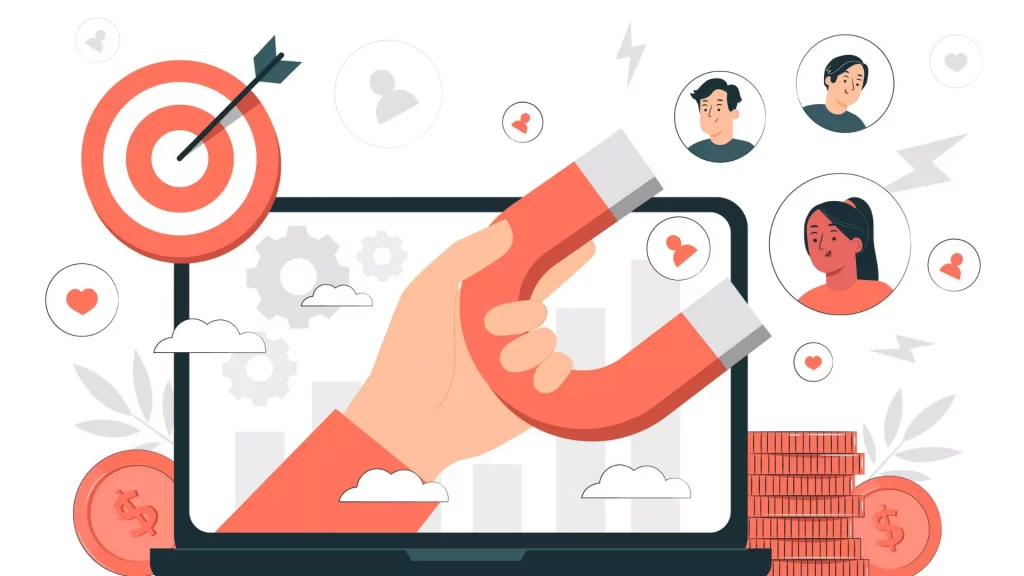Understand The Importance Of Follow Ups: Don’t Let Opportunities Slip Away
Have you ever left a networking event or job interview feeling confident about your conversation, only to never hear back from the other party? Or maybe you’ve been receiving an unanswered email or voicemail, wondering if your message was lost in the void. Unfortunately, it’s a frustrating experience that’s all too common in today’s fast-paced world. That’s why follow ups are crucial. Whether it’s a quick email to thank you, a follow up call to check in, or a personalized note, following up shows that you’re invested in the relationship and committed to moving things forward. By the end of this blog, you will have all the understanding about follow-ups, from their meaning to their benefits. So let us dive into the art of follow-ups and how you can master this skill to build stronger connections and achieve greater success. Let’s get startedWhat are Follow ups at the Workplace?
Follow ups are a critical part of effective communication and collaboration in the workplace. So it is to check in with someone after a task or project has been completed to ensure that everything was done correctly and that there are no loose ends. As an employee, you may receive follow up requests from your manager or colleagues, or you may need to initiate follow-ups yourself. These follow-ups can take many forms, including phone calls, emails, meetings, or even informal chats in the hallway.Understanding the importance of Follow ups
- They ensure that work is completed to a high standard and that there are no errors or omissions. This helps prevent costly mistakes and ensure that deadlines are met.
- They provide an opportunity to address any issues or concerns arising during a project. This can help resolve conflicts and ensure everyone is on the same page.
- Follow-ups can build stronger relationships between colleagues and foster a culture of accountability and trust.
Effective follow ups strategies
- Setting clear expectations at the outset of a project.
- Establishing regular check-ins and progress updates.
- Being proactive in addressing any issues or concerns that arise.
Other Interesting Reads
Role of Follow ups in a Performance Review
Performance reviews are essential to managing a successful team in the workplace. They are a way to assess individual performance, set goals, and identify areas for improvement. In addition, follow ups after performance reviews are crucial for ensuring that goals are met, feedback is addressed, and progress is made. Performance Reviews are typically conducted regularly, such as annually or bi-annually. During a performance review, managers provide feedback to employees on their strengths and weaknesses, assess their progress toward goals, and identify areas for improvement. This feedback can set new goals and create an improvement plan. Follow-Ups after performance reviews are essential for ensuring that goals are met, and progress is made. They allow managers and employees to discuss progress, address issues or concerns, and provide support and guidance as needed. Follow-ups can also motivate employees and keep them on track toward achieving their goals. Performance reviews and follow ups provide numerous benefits to both employees and employers. For example, employees can receive feedback, set goals, and develop new skills. This can help to boost confidence, improve performance, and increase job satisfaction. Likewise, employers provide a way to assess individual and team performance, identify areas for improvement, and increase productivity and profitability.
Understanding Different Types of Follow ups at the Workplace
Follow-ups are an essential part of any workplace. They are the key to building and maintaining strong relationships with clients, customers, and colleagues. There are various types of follow ups, each serving a unique purpose. In this blog, we will explore some of the most common types of follow-ups and how they can benefit your workplace. Sales Follow-Ups Sales follow ups are crucial for converting leads into customers. Once you have made initial contact with a potential customer, following up with them regularly is essential to maintain their interest and keep them engaged. In addition, by providing them with more information about your products or services, you can help persuade them to purchase. Meeting Follow-Ups Following up after a meeting is essential for ensuring everyone is on the same page. It is an opportunity to recap what was discussed, clarify misunderstandings, and set expectations for the next steps. By sending a follow-up email or message, you can also show appreciation for the time and effort you put into the meeting. Job Application Follow-Ups If you have applied for a job, following up with the employer is essential to show your interest and enthusiasm for the position. You can reiterate your qualifications and remind the employer of your application by sending a follow up email or message. This can keep you top of mind and increase your chances of getting the job. Customer Service Follow-Ups Customer service follow-ups are crucial for ensuring customer satisfaction. By following up after a purchase or service, you can show that you care about their experience and are willing to address any issues that may arise. This can build customer loyalty and increase the likelihood of repeat business. Project Follow Ups Following-up after a project is essential to ensure everything is completed successfully. It is an opportunity to gather feedback, address any issues, and identify areas for improvement. By sending a follow-up message, you can also show your appreciation for the hard work and dedication that was put into the project. Follow-ups are a way to build and maintain relationships, show appreciation, and ensure everything runs smoothly. By understanding the different types of follow-ups and how they can benefit your workplace, you can help to improve communication, build trust, and increase productivity.What is Follow Through?
Follow through is completing a task or project to its conclusion, even after the initial steps have been taken. It involves being persistent and diligent in seeing things through to the end rather than getting sidetracked or losing focus. Follow-through is essential in both personal and professional contexts, as it demonstrates reliability and a commitment to one’s goals. Without follow-through, ideas may never come to fruition, and progress can stall. By making follow-through a habit, individuals can develop a reputation for dependability and achieve greater success in their endeavors.Lack of follow through
Lack of follow through in the workplace significantly hinders productivity, efficiency, and success. It is the failure to complete tasks or projects promptly and effectively, often due to poor communication, unclear expectations, or a lack of accountability. Lack of follow through can lead to frustration, missed opportunities, and even damage to relationships and reputations. It can also harm the organization’s overall success, as missed deadlines and incomplete projects can result in lost revenue and decreased productivity. To overcome a lack of follow through, it is essential to establish clear expectations and deadlines for tasks and projects and to communicate openly and effectively with colleagues and managers. This can help ensure that everyone is on the same page and that work is completed promptly and effectively. Holding oneself and others accountable for completing tasks and meeting deadlines is also essential. This can be achieved through regular check-ins, progress updates, and feedback sessions, which allow discussing any issues or challenges. So, embrace the importance of follow-through and use it as a tool for success in your workplace.Conclusion
Effective follow ups can make all the difference in achieving success in various aspects of our lives, whether in personal relationships or business. By making a plan, being consistent, and using the right communication methods, we can ensure that our follow-ups are timely, respectful, and productive. We’ve discussed some critical follow-up tips, such as setting a specific time frame, being organized, and providing value. Remember, following-up is not just about being persistent but also about building trust and strengthening relationships. By mastering the art of follow-ups, we can create more opportunities, maintain connections, and ultimately achieve our goals. So go ahead, follow up, and see where it takes you! To learn more about workplace culture and become a better manager, sign up to Risely- the manager’s buddy!Follow-ups are essential to reach goals. Are you setting goals well?
Take the free goal-setting assessment to find out which mistakes are holding you back.
FAQs
What is a good follow up example?
A good follow up example is sending a personalized email within 24-48 hours after meeting someone, thanking them for their time, and summarizing key points discussed.
What is a follow up process?
A follow up process is a systematic approach to communication and relationship-building, including timely and personalized messages designed to maintain contact and move business opportunities forward.
What is follow up in work?
Follow up in work refers to checking in on the status of a project or task or reaching out to a colleague or client to ensure that communication and progress are maintained.
Other Related Blogs
Executive Communication Coach: When And How To Choose
Executive Communication Coach: When And How To Choose Good communication is a must for professional success. After all, half of people management is all about saying the right things in…
5 Unique Benefits Of Online Leadership Coaching
5 Unique Benefits Of Online Leadership Coaching Remember the days of leadership development being confined to a stuffy conference room filled with flipcharts and generic advice? Yeah, those days are…
Performance Management Training: Empowering Managers To Manage Better
Performance Management Training: Empowering Managers To Manage Better Remember that feeling of dread when you knew performance review season was rolling around? Yeah, us, too. For many employees, performance reviews…
Manager Development Goals And How To Reach Them: Opportunities And Areas To Focus On
Manager Development Goals And How To Reach Them: Opportunities And Areas To Focus On You’ve meticulously crafted a development program for your high-potential employees, but their managers just aren’t on…


